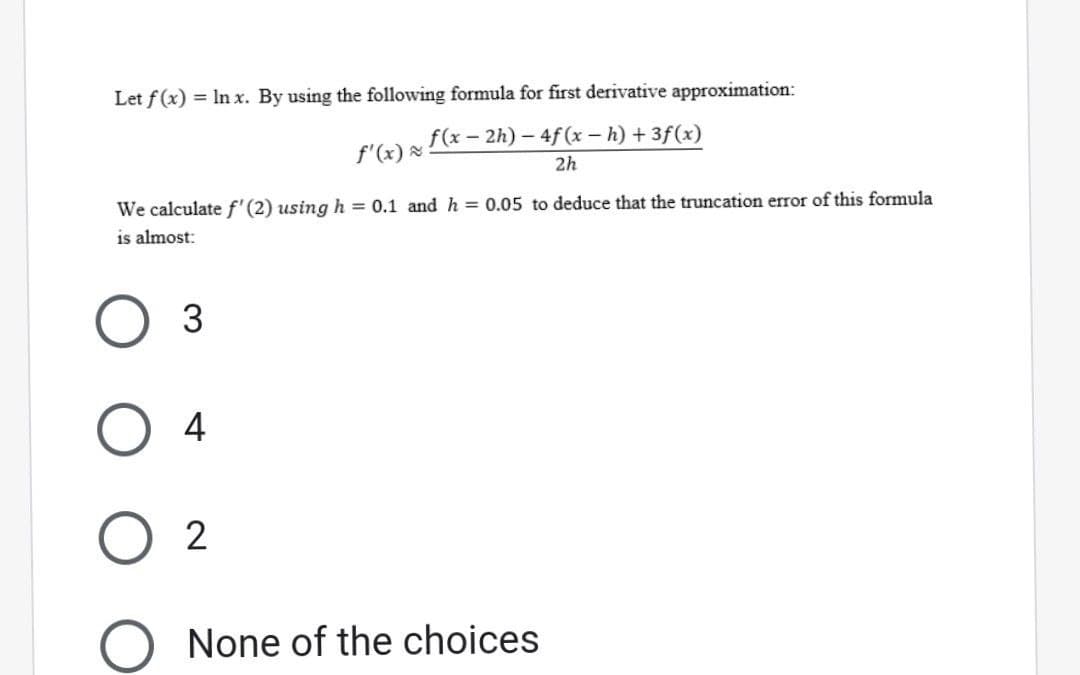Let f(x) = ln x. By using the following formula for first derivative approximation: - - f'(x) ≈ f (x − 2h) - 4f (x − h) + 3f (x) 2h We calculate f'(2) using h = 0.1 and h = 0.05 to deduce that the truncation error of this formula
Let f(x) = ln x. By using the following formula for first derivative approximation: - - f'(x) ≈ f (x − 2h) - 4f (x − h) + 3f (x) 2h We calculate f'(2) using h = 0.1 and h = 0.05 to deduce that the truncation error of this formula
Functions and Change: A Modeling Approach to College Algebra (MindTap Course List)
6th Edition
ISBN:9781337111348
Author:Bruce Crauder, Benny Evans, Alan Noell
Publisher:Bruce Crauder, Benny Evans, Alan Noell
Chapter2: Graphical And Tabular Analysis
Section2.1: Tables And Trends
Problem 1TU: If a coffee filter is dropped, its velocity after t seconds is given by v(t)=4(10.0003t) feet per...
Related questions
Question
i need the answer quickly

Transcribed Image Text:Let f(x) = ln x. By using the following formula for first derivative approximation:
f(x-2h)-4f(x - h) + 3f(x)
f'(x) ≈:
We calculate f' (2) using h = 0.1 and h = 0.05 to deduce that the truncation error of this formula
is almost:
3
4
2
None of the choices
2h
Expert Solution
This question has been solved!
Explore an expertly crafted, step-by-step solution for a thorough understanding of key concepts.
Step by step
Solved in 2 steps with 2 images

Recommended textbooks for you

Functions and Change: A Modeling Approach to Coll…
Algebra
ISBN:
9781337111348
Author:
Bruce Crauder, Benny Evans, Alan Noell
Publisher:
Cengage Learning

Functions and Change: A Modeling Approach to Coll…
Algebra
ISBN:
9781337111348
Author:
Bruce Crauder, Benny Evans, Alan Noell
Publisher:
Cengage Learning